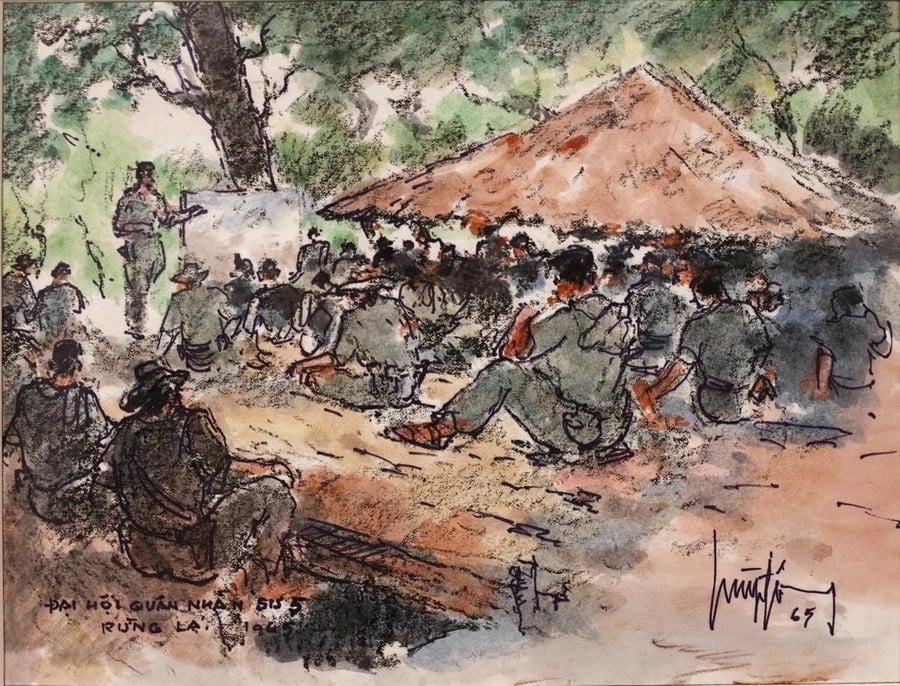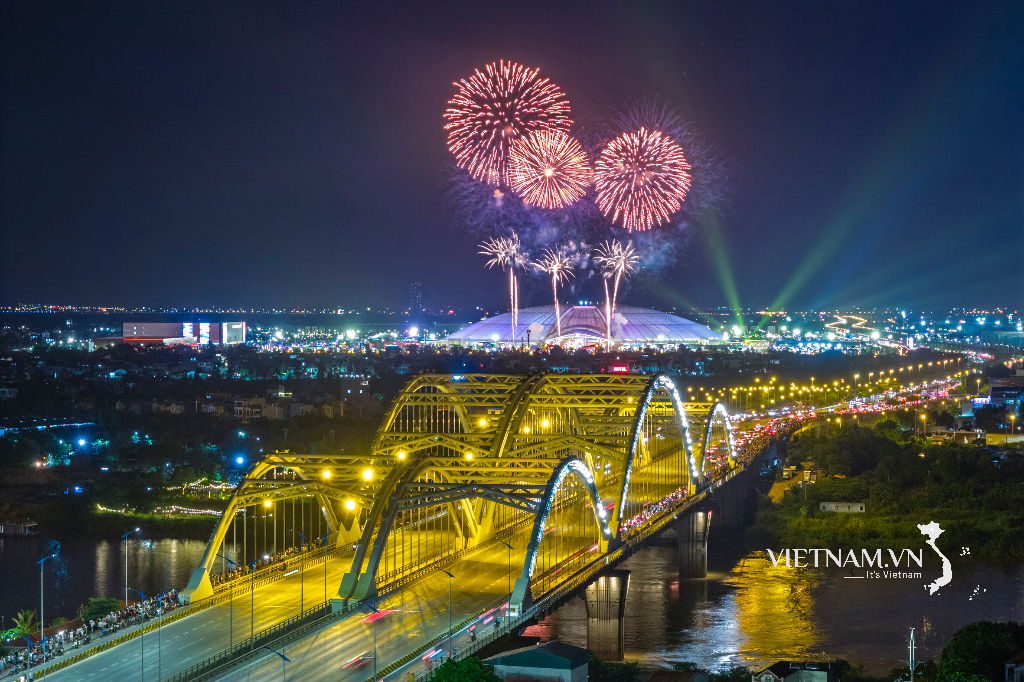And naturally, Vietnamese literature must accompany this aspiration.
Throughout history, literature, whether poetry or prose, has always had to focus on the human condition in order to survive and thrive. Human beings must be the central theme of literature, and creators must cultivate the desire to express the human condition from multiple perspectives in the deepest possible way.
In other words, what endures over time is deeply intertwined with humanity, both in the past and in the future.
1. The brilliant poet of the Tang Dynasty, Du Fu, wrote poetry about human destiny, through his own personal experiences, and his poems have survived for thousands of years.
For example, in the poem "Mao Oc Vi Thu Phong So Pha Ca" (Song of the thatched hut destroyed by the autumn wind), written in 761, Du Fu wrote: "I wish I had a house with thousands of rooms/So that all the poor scholars in the world would rejoice/Unaffected by wind and rain, as firm as a rock/Alas! When will that house stand majestically before my eyes/Even if my own hut is ruined and I freeze to death!" (Translation by poet Khuong Huu Dung).
From his personal suffering and his own fate, Du Fu revealed the suffering of the entire community, of his people. He longed to have a "house with thousands of rooms" large enough to shelter "the whole world" from rain and sun, so that "poor scholars could all rejoice." From his personal fate, he opened up the fate of humanity in general—that is the essence of Du Fu's poetry.
Many of us have not forgotten the wonderful short story by the Russian writer Mikhail Sholokhov, whose title says it all—The Fate of Man.
Written in 1957, the story tells of a Soviet Red Army soldier who, after the Great Patriotic War, was discharged but instead of returning to his hometown, went to a friend's village to work as a truck driver, transporting goods to the districts and wheat to the city. There, he met a child orphaned by the war.
Out of compassion for the lonely child, he adopted her. But fate still wouldn't leave him in peace. He lost his job, and he and his daughter once again set off for a distant land in search of a new life…
The writer watched as the father and son gradually disappeared into the distance, his heart filled with a deep sense of unease. That's how the short story was born—a very short story, yet one that readers have categorized as a "mini-epic."
Mikhail Sholokhov was later awarded the Nobel Prize in Literature in 1965 for his entire career, in which his short story *The Fate of a Man* is frequently mentioned for its humanistic themes.

The artwork "Congress of Soldiers of the 5th Division" by artist Huynh Phuong Dong was created in 1965.
2. When I wrote the epic poem "Those Who Go to the Sea," my first epic poem, I considered it a process of self-awareness about the people, about my comrades, and about what I received when I joined the common struggle.
There is a passage in this epic poem where, when writing about the young messengers, I am reminded of the torch from Danko's heart shining in the night forest. But these children are not alone like Danko's torch.
Alone in the forest at night, the young messengers remained confident and fearless because they knew they were surrounded by comrades. When they sang about the forests of the Eastern region, the messengers felt that the trees were also their comrades—"Then the little messenger, while clearing a path, softly sang /the song of the forests of the Eastern region/where we have lived for many years/pushing back every patch of darkness/severing every ghostly vine/cherishing every green ray of sunlight."
I learned from the messenger girl, feeling the camaraderie through every song, every breath. The reality of the battle gave me that realization, something I hadn't experienced before entering the battlefield – "the song and the fire / I walk in the light of everyone" (Those Who Go to the Sea). To be able to walk steadily in the light of everyone, one must know that one is only a very small part of the whole, and must be closely connected to that whole.
I remember that back then, most of the messengers were very young, but their battlefield experience was quite extensive. Messengers in the Eastern battlefield faced the hardships of the East, while messengers in the Central and Southwestern battlefields faced the dangers of the fiercely contested areas. I was fortunate to experience many different types of battlefields and had the opportunity to be guided by many messengers.
"I walk in the light of the people" means walking in the light of my teammates, of those who guide me, and more broadly, it means I am walking among and with the people, being nurtured and protected by the people—something like that is perhaps unique to Vietnam.
3. With unwavering faith, love, and hope, and with a clear goal, people can absolutely overcome all difficulties, including the devastation and destruction of war, to build a free, peaceful, and happy life. And with a creative aspiration for the nation, a writer can effectively fulfill the role of "secretary of the times."
Many Vietnamese poets and writers have lived through wars, directly participating in them, and understand what war is like. They would certainly not ignore the theme of "human destiny" in their works. Talent will determine how long a work endures, but one must write before considering its lasting impact.
Or as Mikhail Sholokhov advised—Just write, and whatever happens, happens!
Source: https://baogialai.com.vn/van-hoc-va-so-phan-con-nguoi-post569704.html












































































































Comment (0)